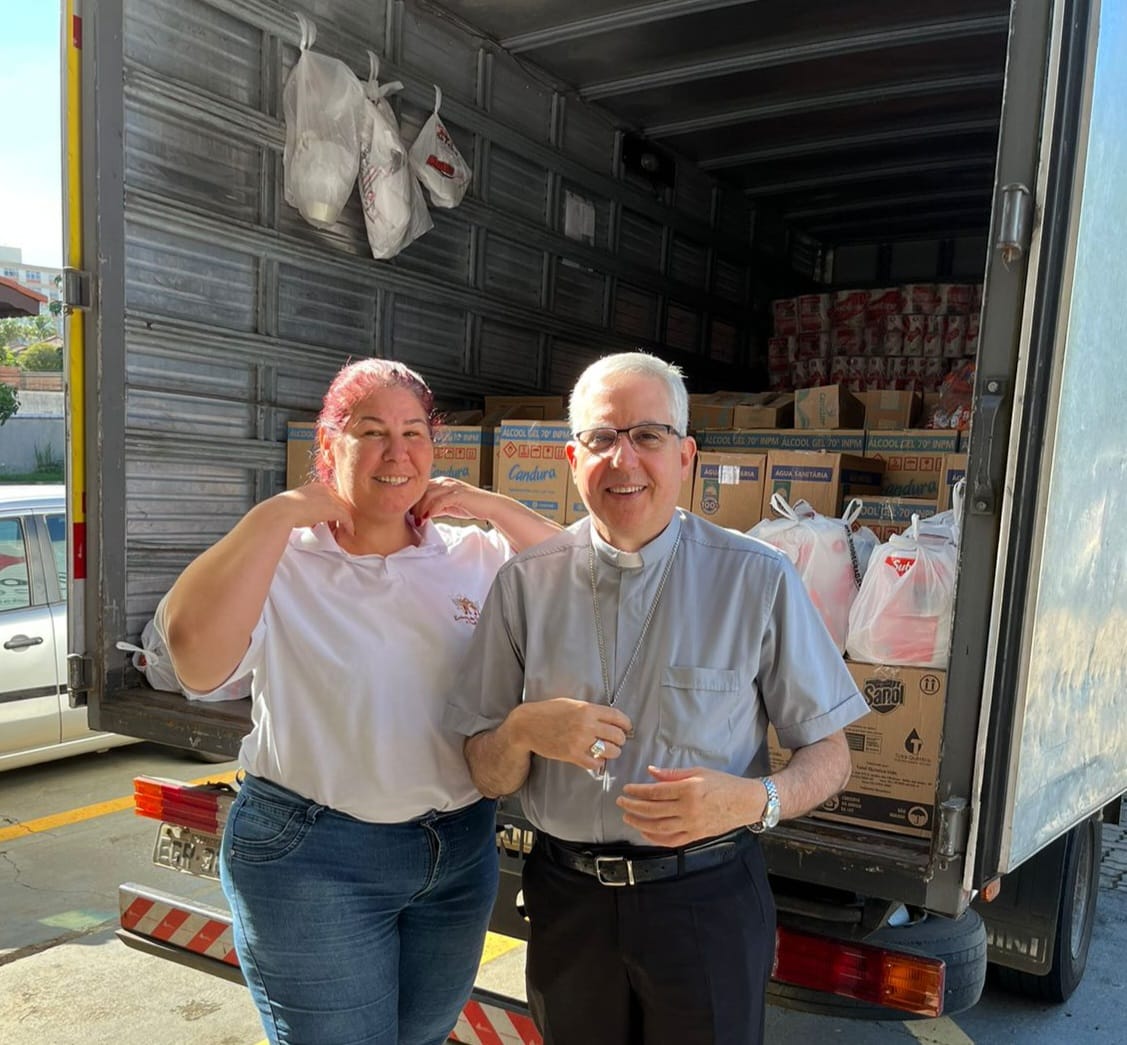SÃO PAULO –The heaviest storm in Brazil’s history hit the coast of São Paulo state on February 18- 19, leaving at least 65 people dead and 4,000 homeless.
Hundreds of houses collapsed in landslides caused by the downpour, which reached more than 23.6 inches.
The city of São Sebastião was the worst hit. The city draws thousands of tourists from the city of São Paulo each year, especially during holidays like the Carnival, when the tragedy occurred. There, 64 people died.
“Our parish became a center of donations coming from civic organizations and from dioceses, parishes, and local Caritas branches from all over the country,” Father Douglas Franco Machado told Crux.
The local Church has been giving support to the people impacted by the rainstorms from the start, Machado added. The city government has opened emergency shelters for up to 1,500 people who lost their homes and there they receive food, medical kits, and clothing. But there are many people not in shelters who also need help.
“Many victims are living with their families and need food, cleaning products, clothes. We have been working to serve these people,” he said.
In the days following the floods, there has been a surge of cases of diarrhea in the region, partially caused by the destruction of hundreds of septic tanks and the breakdown of the sanitation system.
The searches for victims took several days, with rescue teams having to remove a huge amount of mud and debris from the impacted areas. Many bodies were taken to one of the shelters in São Sebastião, Machado said.
“We were not able to go there because all roads were blocked, but ministers of our parishes were there. They even set up a prayer room at the shelter and gave comfort to the families,” he said.
Seven days after the incident, Machado could finally lead a liturgy to honor the victims and give hope to survivors.
“The community is psychologically devastated. But I told the people during Mass: ‘There was enough water to drown all of us. If we are still here, it means that we have a mission now’,” he said.
Solidarity has been huge, Machado said. The Archdiocese of São Paulo’s Caritas is one of the Church organizations working to coordinate relief.
“We launched a donation campaign and opened a bank account in order to make a financial contribution to the parish in São Sebastião. We also have been motivating people to donate food, medicines, and cleaning projects to the government’s Civil Defense,” Father Marcelo Marostica, Caritas’s director, told Crux.

He said that the initial impact of this kind of tragedy usually motivates a large amount of donations, but after some time they tend to fall. That is why Caritas São Paulo will send its financial contribution after that phase, when less contributions will be arriving.
“We know that at any moment another tragedy may happen elsewhere, and donations will go down. But we will still need them. So, we are taking care to properly manage everything that is arriving,” Machado said.
The priest added that he has been continually receiving phone calls from clergy and laypeople offering assistance. That was the case of the Diocese of Piracicaba, which sent a truck full of donations to São Sebastião last week.
“We sent 250 food kits, besides clothes and cleaning products. The truck broke down in the road due to overload,” said Bishop Devair da Fonseca.
The campaign was organized by a Piracicaba civic organization called Exército de Formiguinhas (Little Ants’ Army), which is endorsed by the diocese and is housed at the diocesan headquarters.
“They distribute 1,500 food kits every month in the poor neighborhoods of the city,” da Fonseca said.
Débora Ferraz, the founder of the group, explained that she contacted Machado and he informed her of their most urgent needs – cleaning products, hygiene items, diapers, and clothes.
“We had only one day to collect the donations and to buy additional items. The reaction of the people was fantastic, and donations were generous. We travelled to São Sebastião one week after the storm,” she told Crux.
Two Capuchin priests from Piracicaba accompanied Ferraz and not only helped to distribute the donations, but also took part in the commemoration with the families of the victims led by Machado.
“We saw with our own eyes the hardships that those people are facing. You can feel their pain, but also their faith – and a great atmosphere of solidarity,” Ferraz said.
She and da Fonseca are now planning to launch a new campaign in order to collect specific items, like diapers.
“We also want to make something bigger now so we can really help to rebuild some of those families’ lives,” Ferraz said.
Despite the situation, Machado said that something beautiful is taking place.
“The Brazilian people is so generous that it could end hunger in the world. Even the people here, who have been affected by the tragedy, are working as volunteers with us. The people’s faith is alive,” the priest said.














